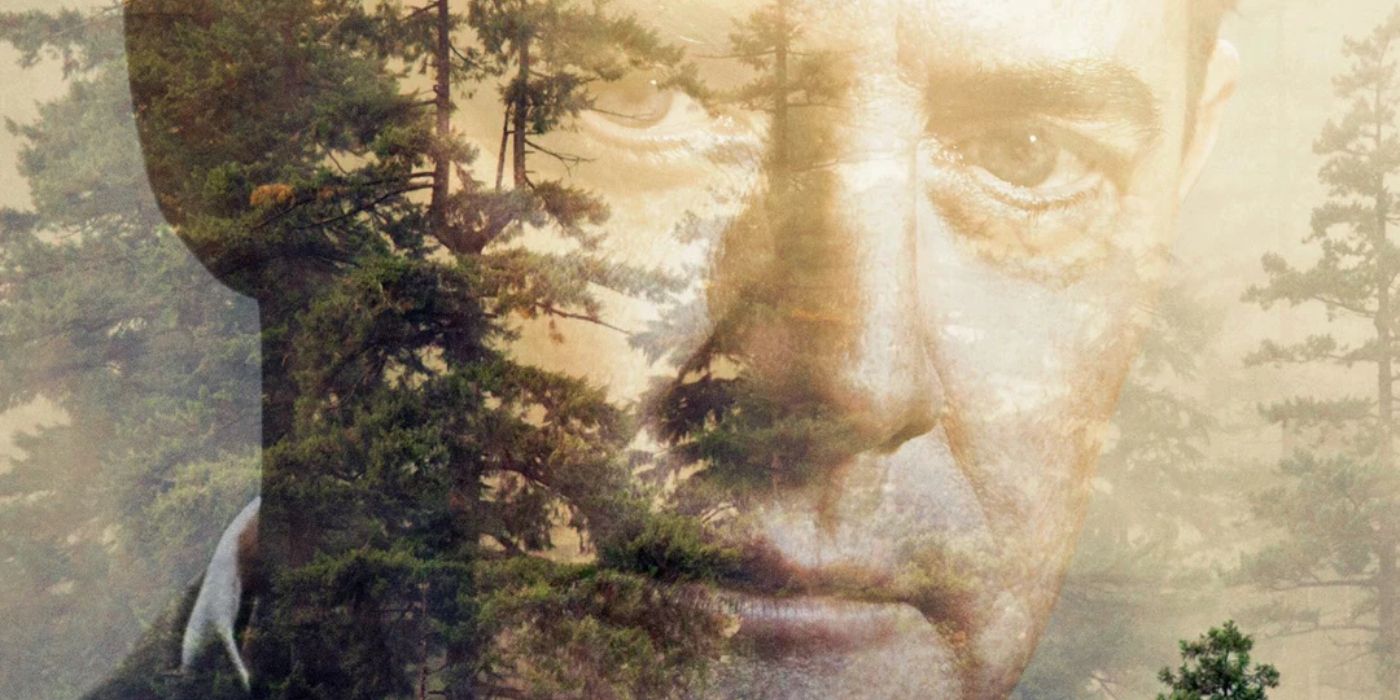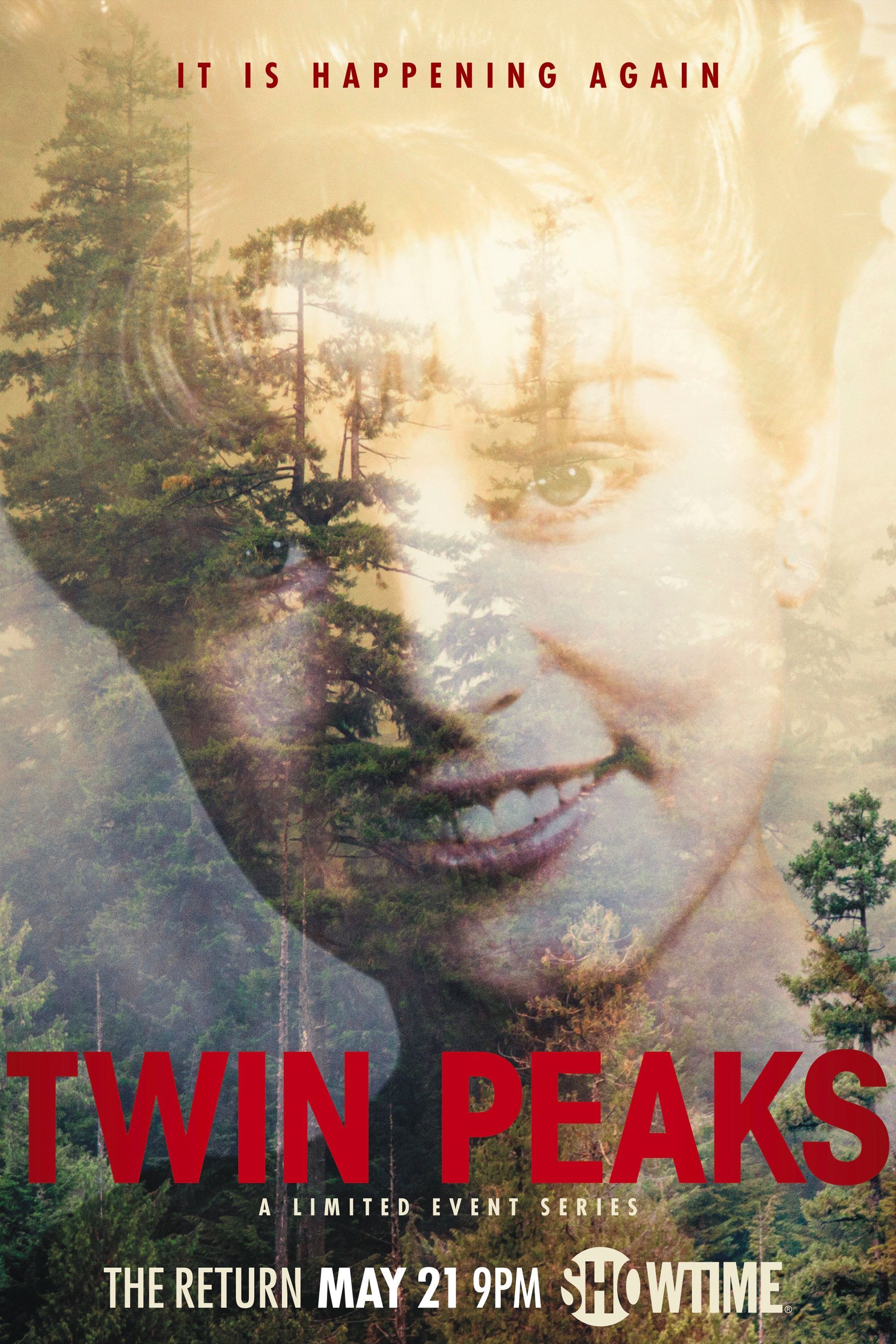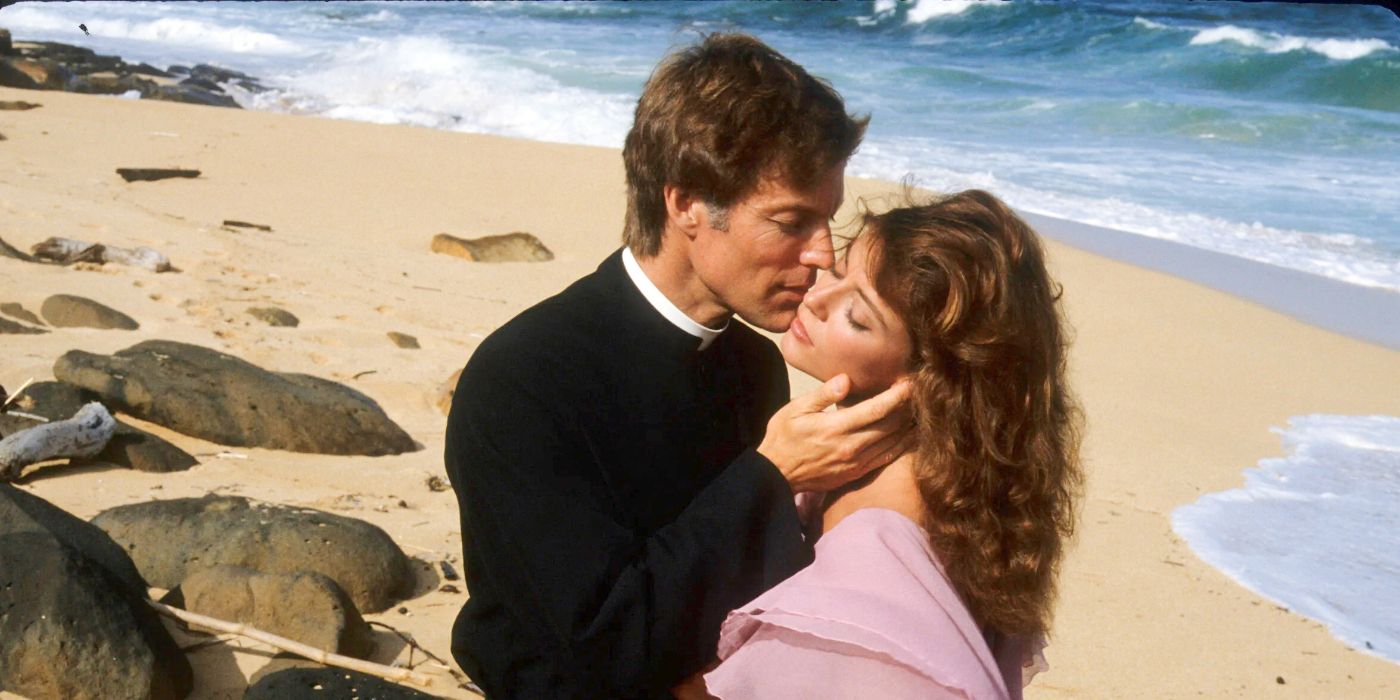When Denise Bryson (David Duchovny) first steps through the doors of Twin Peaks‘ sheriff’s department, neither she nor her wider significance is perfectly handled. Once the initial surprise and poor-taste jokes from surrounding characters fade, however, no one questions her transition nor her merits as an FBI agent — in fact, the narrative presents her as a hero without whom protagonist Dale Cooper (Kyle MacLachlan) would be up a creek. Confident, cool-headed, intelligent, and rarely existing as only a punchline, Denise’s presence as one of the first trans characters featured on primetime network television — especially a phenomenon as intensely anticipated as Twin Peaks‘ second season — is proactively groundbreaking. It might be baby steps filtered through the perspective of series co-creators David Lynch and Mark Frost, two (presumably) straight men in the early 1990s, but those positive baby steps, chipping away at firmly closed doors, still count.
By the time Twin Peaks: The Return rolls around 26 years after Season 2’s cliffhanger ending, Denise still isn’t heavily featured in the main story. Although that feels like a repeated, if non-malicious, oversight, within that quarter-century, Denise has defied every cruel and bigoted barrier by rising from field agent to the FBI’s Chief of Staff. When Deputy Director Gordon Cole (Lynch) pays Denise an important visit in The Return‘s fourth episode, he’s first greeted by her secretary, Bill Kennedy (Richard Chamberlain). Some of the many newly added, big name actors sprinkled throughout The Return’s expansive cast heavily contribute to Season 3; others, like Chamberlain, appear for less than two minutes. On the surface, Bill and Gordon’s exchange seems like average small-talk pleasantries between colleagues — and as far as celebrity cameos go, it’s not the flashiest. Chamberlain’s polite Bill might not punch Killer BOB into oblivion like Freddie Sykes (Jake Wardle), but of all the performers who would leap at the chance to join one of Lynch’s projects for even 60 seconds, a legacy actor of Chamberlain’s heft playing this specific role carries a larger, lasting cultural weight than its brevity suggests.
Richard Chamberlain Was One of Television’s Biggest Faces Decades Before His ‘Twin Peaks: The Return’ Cameo
Dubbed “the king of the miniseries” during the format’s heyday in the ’70s and ’80s and considered a heartthrob for his string of romantic leading roles, Chamberlain starred as John Blackthorne in the original Shōgun adaptation as well Dr. Kildare, one of the earliest serialized medical dramas, and 1983’s The Thorn Birds. At the time, The Thorn Birds became the second highest-rated miniseries of all time after Roots, thanks in no small part to the hubbub surrounding the sweeping, forbidden love story between Chamberlain’s tormented Catholic priest and Rachel Ward‘s besotted Meggie Cleary. Three years earlier, Shōgun had also been a cultural zeitgeist, winning a Peabody Award and solidifying the limited series as a viable style; Chamberlain, meanwhile, earned household name status and his second of three Golden Globe wins.
Magnetically charismatic in a safe, inviting way that made him an ideal period-piece hero, but versatile enough for Broadway musicals and William Shakespeare, Chamberlain kept working into the late 2010s with guest roles in Will & Grace, Desperate Housewives, and Brothers & Sisters. Even though he could’ve tackled a variety of parts within The Return, Lynch offered him Bill; already a fan of Lynch and Twin Peaks, Chamberlain eagerly accepted. As brief as his appearance is, it’s warm, charming, and thoroughly meta, and not merely because The Return almost counts as a prestige limited miniseries, if you squint. In 2003, when he was 69 years old, Chamberlain came out as gay. His peak career opportunities had passed, and that timing was intentional, as his autobiography Shattered Love: A Memoir and subsequent interviews revealed. He told Dateline in a 2003 feature: “I’m not a romantic leading man anymore so I don’t need to nurture that public image anymore.”
Growing up in the ’30s and ’40s, all Chamberlain heard was hatred — that being gay was an irredeemable flaw. He remained silent about his sexuality — and his commitment to his long-term partner, actor Martin Rabbett — in order to keep doing what he loved, and because it took decades for Chamberlain to accept himself without guilt. As he explained to Deadline, “I disliked myself intensely and feared this part of myself intensely and had to hide it and became ‘Perfect Richard, All-American Boy’ as a place to hide.” Years later, Chamberlain reflected on how coming out was healing for him, while acknowledging to the Advocate that “despite all the wonderful advances that have been made, it’s still dangerous for an actor to talk about that in our extremely misguided culture.”
Richard Chamberlain’s History Enriches a Crucial Scene in ‘Twin Peaks: The Return’
Many of Lynch’s works exist in open conversation with entertainment history. Wild at Heart echoes his established love for The Wizard of Oz, while nearly his entire filmography — especially Twin Peaks, Blue Velvet, Mulholland Drive, and Lost Highway — draws heavy inspiration from classic film noir. All creators take from the art preceding and surrounding them, and Lynch intentionally acknowledges his influences while remixing them via his moody, circuitous lens. He also demonstrates emotional maturity and immense spiritual depth — always delicately balancing how the perpetrators of our world’s bleakest nightmares hide in plain sight with the kind of empathy that cherishes life’s small joys and demands we see humanity in those whom systematically oppressive structures have deemed unworthy of it.

Related
One of ‘Twin Peaks’ Most Divisive Characters Had the Best Redemption Arc in ‘The Return’
This surprising change of direction is David Lynch at his most heartwarming.
Even though they moved in different circles, both Lynch and Chamberlain worked during the same decades; it stands to reason the former knew about the latter’s popularity and impact. In Twin Peaks: The Return‘s fourth episode, Bill’s first of two shots opens with him escorting Gordon Cole into Denise’s office. As the men wait for their superior to return from a meeting, congenially chatting about other people the audience has no context for, Lynch places both characters on opposite sides of the screen. Denise’s empty desk, backed by the American flag and official symbols of government authority, waits several feet ahead of them, framed between these two elderly men. Minutes later, Lynch makes his personal stance on trans rights unignorable by stating it himself during the “old-school” Cole’s conversation with Denise, his former subordinate: “When you became Denise, I told all of your colleagues, those clown comics, to fix their hearts or die.”
Not only is Denise’s secretary an older man who’s perfectly content to support a trans woman who’s both considerably younger than him and the most powerful person in their profession, Bill is portrayed by a small-screen icon who happens to be a gay man — the face who helped usher in a successful new television format, and that same desirable face spent most of his career in the closet while performing the heterosexual masculinity his roles required, before joyfully living his truth in his later years. Recognizing Chamberlain for his career or knowing his sexuality isn’t required to decipher what Lynch conveys, but the context and considerable layers behind Lynch’s meta-casting choice enriches a seemingly middling exchange into a profound statement.
Losing David Lynch and Richard Chamberlain in 2025 Makes Their ‘Twin Peaks: The Return’ Scene More Poignant
As fate would have it, Twin Peaks: The Return was the last time the late Chamberlain graced our television screens in a new role, as well as the late Lynch’s final long-form project. Both gentlemen passed away in 2025 — the same year that anti-trans politicians in America and around the world, emboldened by their unchecked power, have continued actively targeting the trans community by removing essential legal protections and spreading reprehensibly dangerous rhetoric. Chamberlain’s Twin Peaks appearance brackets Gordon and Denise’s conversation, which objectively involves Denise sanctioning a mission to rescue the man they believe to be Cooper, their long-lost friend. Even though Lynch refused to explain his works, insisting audiences draw their own interpretations, only one interpretation of this scene feels truthful: it’s an occasion for Gordon’s “fix your hearts or die” statement, a quote that’s since become an ongoing rallying cry for the LGBTQIA+ community.
The fight for equal rights has never ended, and might never end during our lifetimes. The connotations behind one cameo within one scene about allyship haven’t changed the world, but it remains a testament to Lynch’s ruthless compassion and a cut-to-the-quick reminder of how many countless people, famous and not, have been forced to hide their identities to survive — followed by the beauty of living authentically and freely, whether it’s Richard Chamberlain’s private life or Denise Bryson’s fictional trajectory. Newly heartbreaking in multiple ways, those not-at-all average, scant few seconds with Bill hold more meaning now than they did eight years ago.


